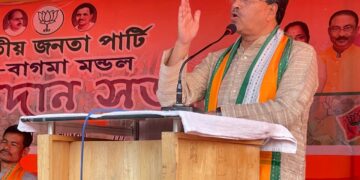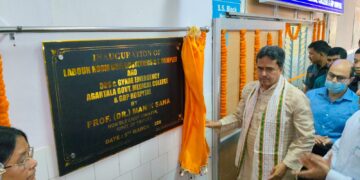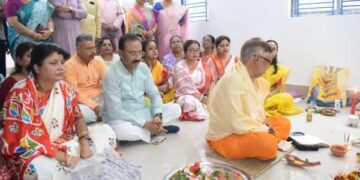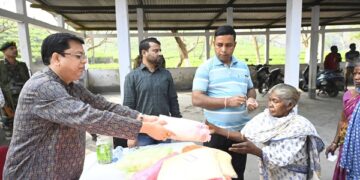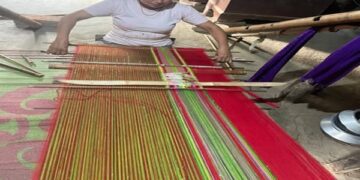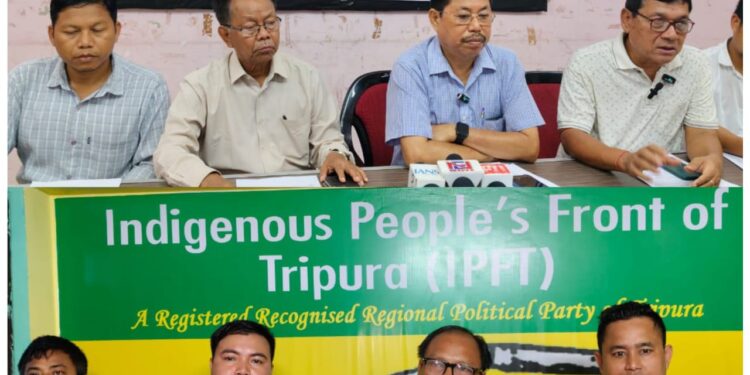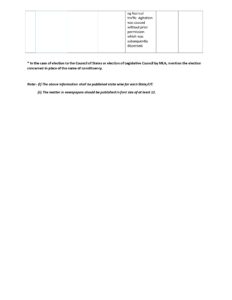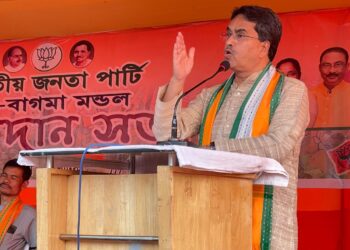Agartala, June 8:
Tripura Chief Minister Manik Saha on Sunday responded for the first time to growing concerns raised by Tipra Motha Party regarding the state’s inaction on identifying and deporting illegal immigrants, claiming that the government is actively working on the issue and in accordance with the law.
Speaking to reporters, CM Saha stated, “There’s no need to worry. All information regarding the matter is available, and whatever needs to be done, including deportation, is being carried out.”
The remarks came amid mounting pressure from ruling BJP ally Tipra Motha, whose MLA Ranjit Debbarma recently met with Tripura Governor Indra Sena Reddy Nallu and expressed dissatisfaction with the state government’s perceived inaction.
Debbarma, who has been organizing rallies on the matter and written to the Chief Secretary beside all DMs and SPs for implementation, also warned of launching a large-scale agitation if necessary steps are not taken soon within the 30 days time frame.
Meanwhile, the Indigenous People’s Front of Tripura (IPFT), another ally in the ruling coalition, echoed concerns during a press conference on Sunday.
Without directly naming Motha, IPFT general secretary Swapna Debbarma stated, “We do not believe in taking the law into our hands, but we have urged the state government to implement the Ministry of Home Affairs’ (MHA) directive on identifying and deporting illegal immigrants.”
Swapna Debbarma described infiltration through Tripura as a “cancer,” arguing that the state has become a launchpad for infiltrators spreading across India.
He highlighted that this long-standing issue was a driving factor behind IPFT’s demand for a separate Tipraland state.
However, Debbarma also pointed out ambiguities in the MHA order, particularly regarding the cut-off date for identifying immigrants—whether it aligns with the 1971 benchmark or the 2015 date mentioned under the Citizenship Amendment Act (CAA).
He questioned whether those identified would be deported or held in detention camps, and raised concerns about the lack of mechanisms to prevent returnees from re-entering the country.
Meantime, Joint Action Committee of Civil Society (JACCS), a local NGO advocating for indigenous rights, also criticized the state government’s inaction.
Convenor Dr. Bijoy Debbarma remarked, “While several Indian states have taken bold steps following the MHA directive, Tripura has shown no such initiative.”
He warned that the group might resort to a strong movement if the government fails to act promptly, emphasizing that illegal immigration also poses a threat to national security.
As pressure builds from both political allies and civil society groups, the state government is now under close scrutiny to demonstrate concrete steps in addressing illegal immigration, a politically sensitive issue in Tripura’s tribal heartland.

